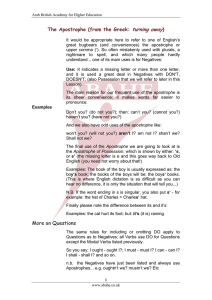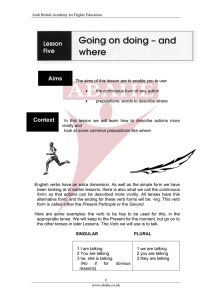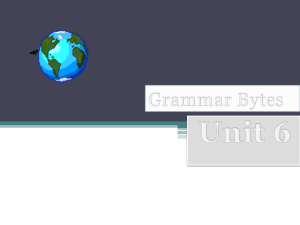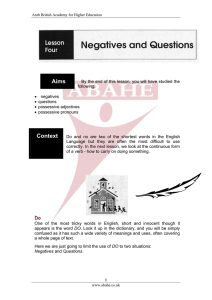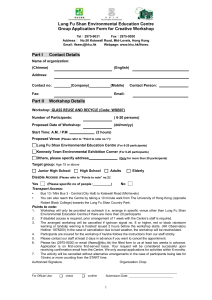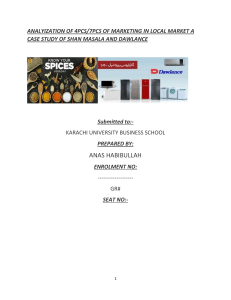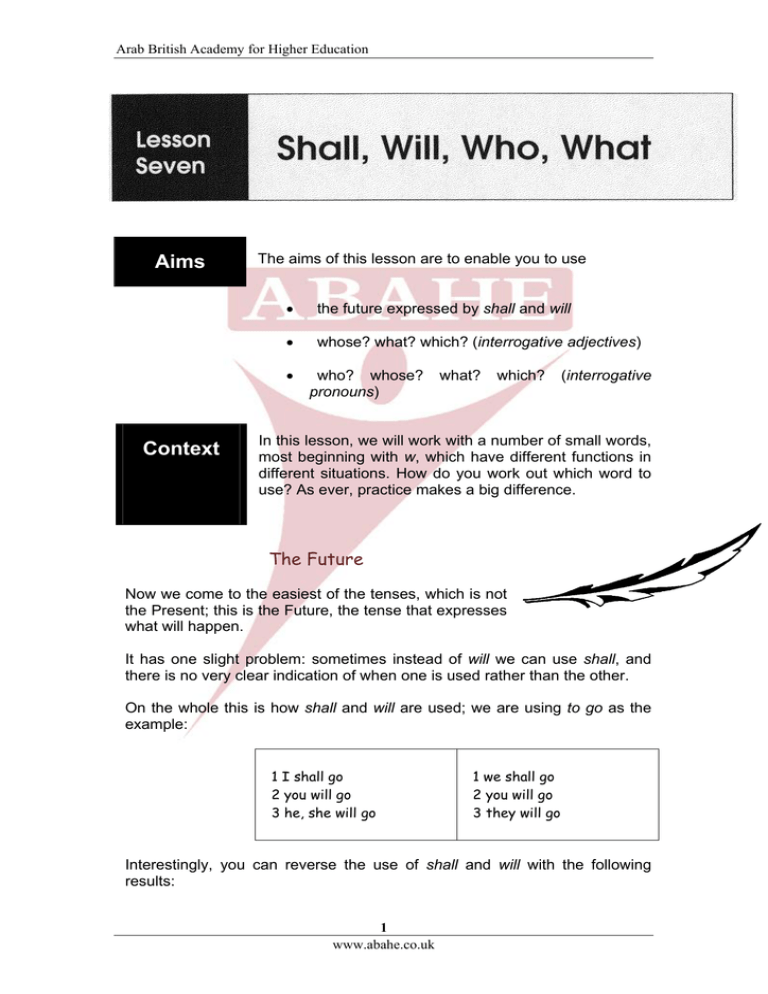
Arab British Academy for Higher Education
Aims
The aims of this lesson are to enable you to use
the future expressed by shall and will
whose? what? which? (interrogative adjectives)
Context
who? whose?
pronouns)
what?
which?
(interrogative
In this lesson, we will work with a number of small words,
most beginning with w, which have different functions in
different situations. How do you work out which word to
use? As ever, practice makes a big difference.
The Future
Now we come to the easiest of the tenses, which is not
the Present; this is the Future, the tense that expresses
what will happen.
It has one slight problem: sometimes instead of will we can use shall, and
there is no very clear indication of when one is used rather than the other.
On the whole this is how shall and will are used; we are using to go as the
example:
1 I shall go
2 you will go
3 he, she will go
1 we shall go
2 you will go
3 they will go
Interestingly, you can reverse the use of shall and will with the following
results:
1
www.abahe.co.uk
Arab British Academy for Higher Education
If you say I will go, this makes the verb more emphatic and the speaker
usually stresses the verb will.
Similarly he shall go is more emphatic than he will go.
Negatives
This again presents some problems, and brings in the apostrophe
mentioned in the last Lesson.
shall shan’t;will won’t
Using the Apostrophe
Nearly always shall and will are shortened by the use of the apostrophe, and
you always say in the shortened form: e.g. I’ll go, he’ll go and so on
regardless of whether the positive is shall or will. Typical English
inconsistency; we always suit our convenience rather keep to fixed rules.
This is the beauty - and difficulty - of English!
Questions
Questions are quite easy as all you need to do is reverse the positive form:
e.g. I shall shall I? you will will you?
(N.b. the apostrophe is only used in negative questions...)
E.g. won’t I? shan’t I? etc.
The Continuous Future
Most English verbs have continuous forms, and the Future is no exception.
The continuous form is always shown by the ending ing.
Examples
I will go I will be going
I will have I will be having
(I’ll be going)
(‘I’ll be having) etc
The Negative is: I shan’t be going, (shan’t I be going?) I shan’t be having,
(shan’t I be having?) and so on. If you look, there is a consistency about all
this which makes these continuous forms far easier to learn.
And their great advantage is to add an extra dimension to
verbs, and is yet another example of the flexibility and
plasticity of English. You can have an almost infinite variety
of shades of meaning especially in our verbs.
2
www.abahe.co.uk
Arab British Academy for Higher Education
Activity
1
Put the following sentences into the Future, Use the continuous
form if that is used in the Present:
a) I am going to the pictures this evening
b) Do you have my ticket? No, Peter has it.
c)
We are not at all sure you are right! (Put only the first
verb into the future)
d)
Are you coming out now? I want to see you.
e)
These pictures aren’t very good. I can (am able to) do
better myself!
Key
Activity One
a)
b)
c)
d)
e)
better myself.
I shall be going to the pictures this evening
Will you have my ticket? No, Peter will have it.
We shall not be at all sure you are right.
Will you be coming out now? I shall want to see you.
These pictures won’t be very good. I shall (I’ll) be able to do
All Rights Reserved © Arab British Academy for Higher Education
3
www.abahe.co.uk

